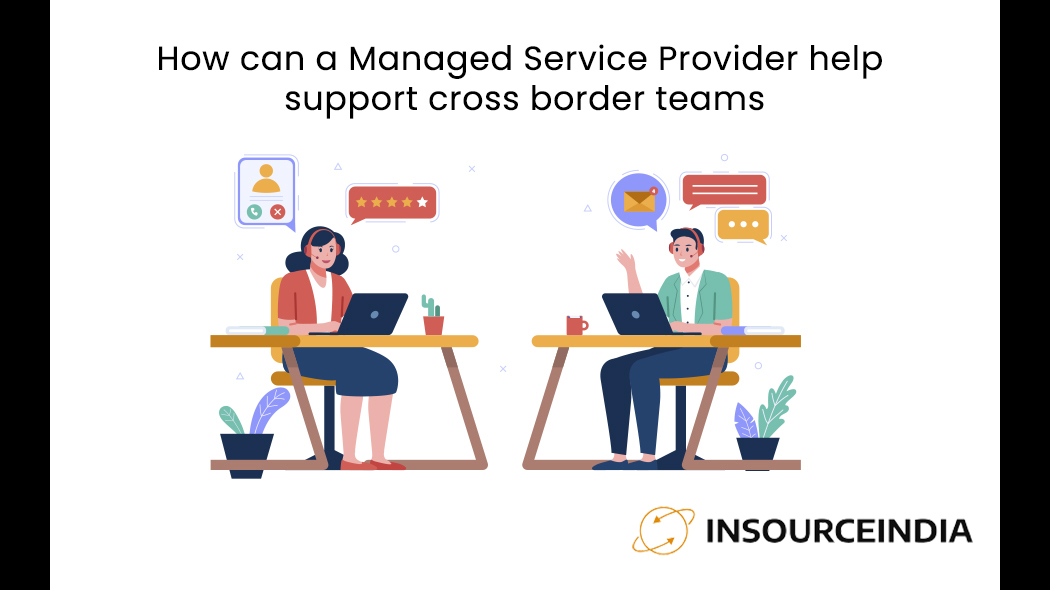In today’s globalized world, many organizations are expanding their operations and building cross-border teams. These teams are made up of individuals from different parts of the world, who work together to achieve a common goal. While cross-border teams have many benefits, they also face unique challenges that can make collaboration difficult. One challenge is the lack of consistent services across different countries, making it challenging for team members to access the resources they need to do their jobs effectively. This is where a managed service provider can help.
A managed service provider is a company that offers a range of services across different countries. These services can include IT support, payroll, legal services, and human resources. By working with a managed service provider, cross-border teams can access the same level of service, no matter where they are located. This can help to streamline processes, increase efficiency, and ensure that everyone has access to the resources they need to do their jobs effectively.
In this blog, we will explore how managed service providers can assist in this area.
1. Communication and Collaboration
Effective communication and collaboration are critical for remote teams. An MSP can help set up communication tools like Slack, Microsoft Teams, Zoom, and other collaboration software. This will allow teams to stay connected and work together seamlessly, regardless of where they are located. The MSP can also help set up a project management tool, which will enable teams to collaborate and keep track of projects, deadlines, and progress.
2. IT Support
Cross-border teams may face different technical issues, depending on their location. MSPs can provide IT support to ensure that all team members have the necessary equipment and software to work effectively. The MSP can also help set up and manage virtual private networks (VPNs) to secure data and protect against cyber threats.
3. Training and Development
Managing cross-border teams requires specific skills and expertise. An MSP can provide training and development to team members to enhance their knowledge and skills. This will help teams work together more effectively, communicate better, and achieve their goals.
4. Eliminate language and cultural barriers
One of the primary benefits of working with a managed service provider is that it can help to eliminate language and cultural barriers. When working with a provider that operates in multiple countries, team members can communicate in their native language and rely on the provider’s local knowledge and expertise. This can help to improve communication and collaboration within the team, making it easier to share ideas and work together to achieve common goals.
5. Reduce Costs
Another benefit of working with a managed service provider is that it can help to reduce costs. Rather than hiring multiple service providers, organizations can work with a single provider to access a range of services. This can help to reduce administrative costs, simplify invoicing and payments, and provide better visibility into expenses.
6. Improve compliance and reduce risk
Working with a managed service provider can also help to improve compliance and reduce risk. MSPs are familiar with local laws and regulations and can help organizations navigate complex legal requirements. This can be especially important when it comes to issues such as data privacy, which can vary significantly from country to country.
7. quality of Service
Finally, working with a managed service provider can help to improve overall service quality. MSPs are typically experienced and well-established, with a track record of delivering high-quality services. By working with the MSP, organizations can ensure that they are receiving the same level of service, no matter where their teams are located.
In conclusion, working with a managed service provider can provide significant benefits for cross-border teams. By providing consistent services across different countries, eliminating language and cultural barriers, reducing costs, improving compliance, and reducing risk, and improving overall service quality, a managed service provider can help to streamline processes and improve collaboration within cross-border teams. For organizations looking to build and maintain successful cross-border teams, partnering with a managed service provider is an excellent way to ensure that everyone has access to the resources they need to do their jobs effectively. The rise of remote work has opened new opportunities for businesses to hire talent from all around the world. However, managing a team across different time zones and cultures can be challenging. That’s where a Managed Service Provider (MSP) can help.










